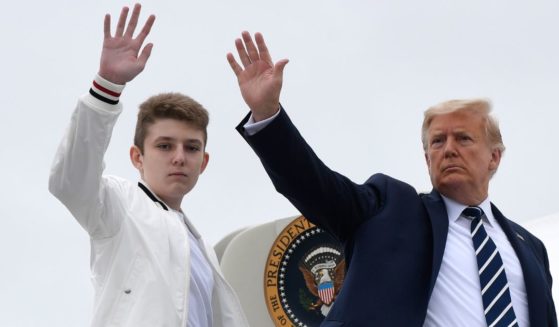Pentagon outlines its first artificial intelligence strategy
The U.S. military wants to expand its use of artificial intelligence in warfare, but says it will take care to deploy the technology in accordance with the nation’s values.
The Pentagon outlined its first AI strategy in a report released Tuesday.
The plan calls for accelerating the use of AI systems throughout the military, from intelligence-gathering operations to predicting maintenance problems in planes or ships. It urges the U.S. to advance such technology swiftly before other countries chip away at its technological advantage.
“Other nations, particularly China and Russia, are making significant investments in AI for military purposes, including in applications that raise questions regarding international norms and human rights,” the report says.
The report makes little mention of autonomous weapons but cites an existing 2012 military directive that requires humans to be in control.
The U.S. and Russia are among a handful of nations that have blocked efforts at the United Nations for an international ban on “killer robots” — fully autonomous weapons systems that could one day conduct war without human intervention. The U.S. has argued that it’s premature to try to regulate them.
The strategy unveiled by the Department of Defense this week is focused on more immediate applications, but even some of those have sparked ethical debates.
The Pentagon hit a roadblock in its AI efforts last year after internal protests at Google led the tech company to drop out of Project Maven, which uses algorithms to interpret aerial video images from conflict zones. Other companies have sought to fill the vacuum, and the Pentagon is working with AI experts from industry and academia to establish ethical guidelines for its AI applications.
“Everything we’ve seen is with a human decision-maker in the loop,” said Todd Probert, a vice president at Raytheon’s intelligence division, which is working with the Pentagon on Maven and other projects. “It’s using technology to help speed up the process but not supplant the command structure that’s in place.”
The Pentagon’s report follows President Donald Trump’s Monday executive order prioritizing AI research across the government.
The Western Journal has not reviewed this Associated Press story prior to publication. Therefore, it may contain editorial bias or may in some other way not meet our normal editorial standards. It is provided to our readers as a service from The Western Journal.
Truth and Accuracy
We are committed to truth and accuracy in all of our journalism. Read our editorial standards.












